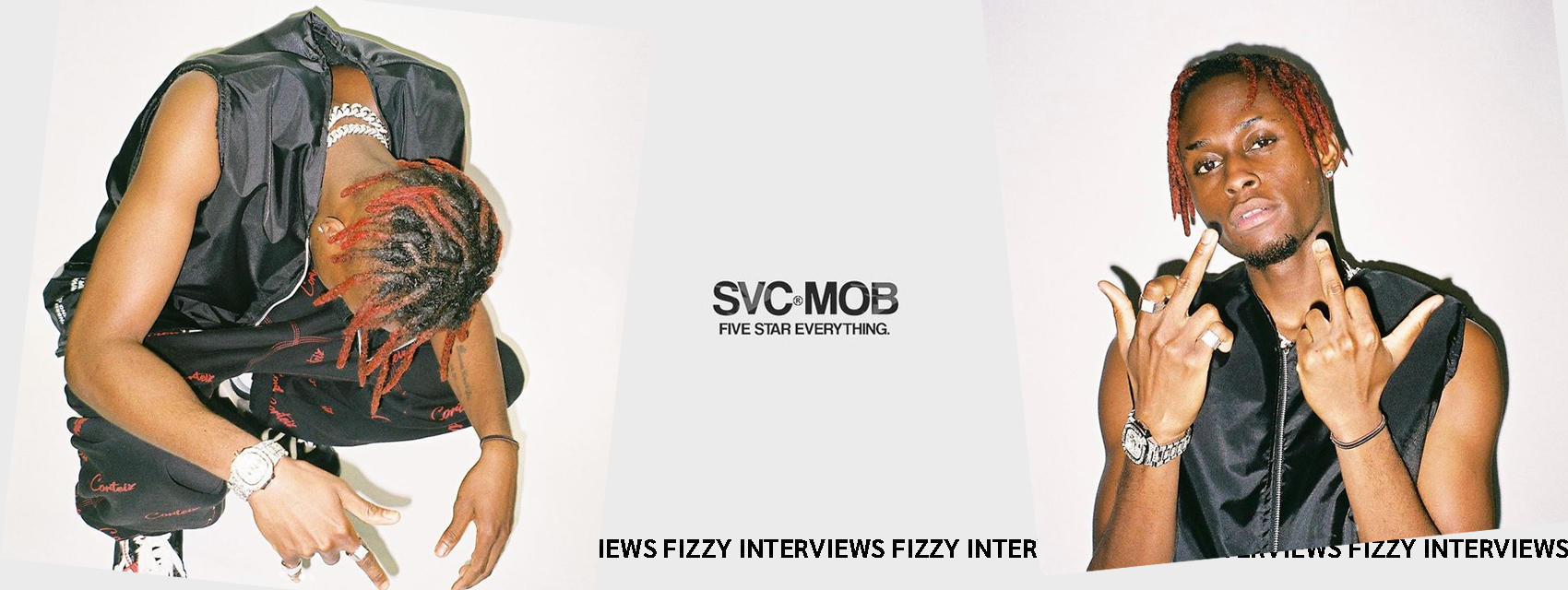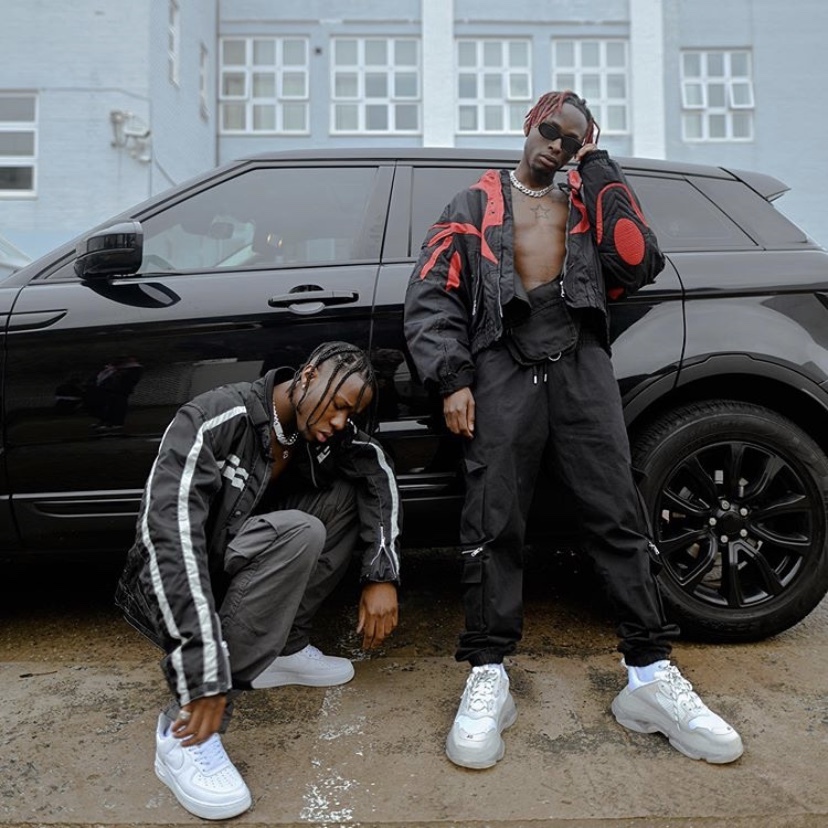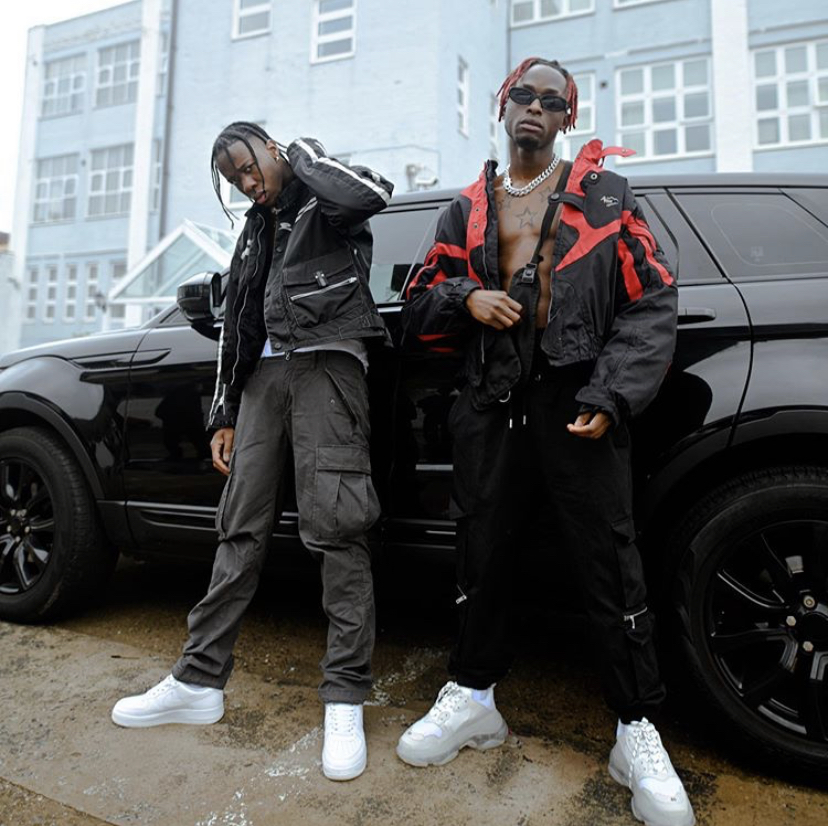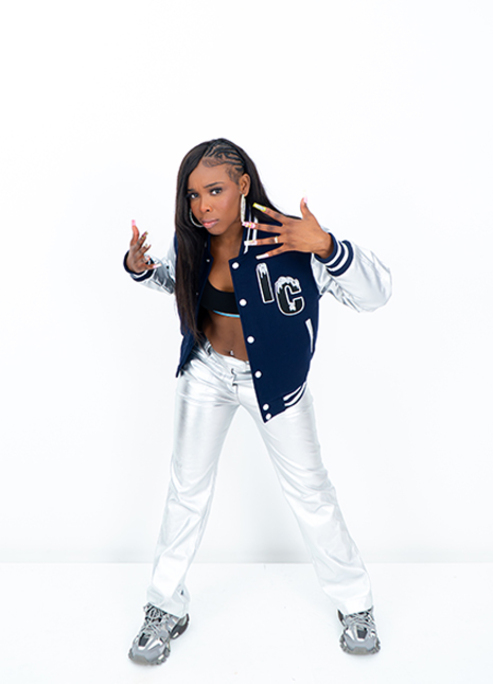
Make Room For SVC Mob: The Rising Collective Demanding A Seat At The Table
You heard it here first.
Powered by SVCIETY, SVC Mob is the latest coldest collective bringing raw and unmatched vibes to the game. Spearheaded by Fareed Toure, artists Kuttaz and Jay French are storming the industry with fearless demeanours and ferocious ambition, carrying a presence demanding to be seen and heard. Coming through with certi visuals, unrivalled flows and unique deliveries accentuating bass-heavy tracks, the artists firmly assert themselves into the conversation surrounding the excellence of Black culture and creativity.
Combining SVCIETY’s both modern and nostalgic elements with their sound and incorporating their international backgrounds into their art, the Birmingham-based artists offer something completely authentic to the scene. Jay French’s latest offering ‘Winning’ talks on his success and iced-out lifestyle, while Kuttaz’s most recent tune ‘T House’ boasts his bold personality and undeniable vim. The distinct vocals and added bilingual spice of both tracks set the stage for the worldwide impact of a force impossible to ignore.
Who did you grow up listening to? Who were your early musical inspirations?
K: From the moment I actually realised I liked music, I started with Usher, to Chris Brown, and from there just carried on with that wave.
J: I’m mostly influenced by French music. I’m from a French background so I grew up listening to French rappers. I started listening to more American Hip-Hop when I was growing up, Kanye was one of my favourites.
How would you describe your aesthetic to those who are yet to discover you?
K: I feel like my style changes all the time, I never have a specific style. At the moment, I like my baggy clothes. I feel like the way I come, it’s versatile. I can be played any beat and do my stuff. I don’t want to be stuck in one genre, my mind is too powerful to be stuck in one channel. I need to explore, my creativity doesn’t sleep.
J: I’m influenced by Insta a lot for fashion. I spend a lot of time looking at different types of fits and different pages that promote different outfits. I wouldn’t say anyone influenced me to dress the way I dress today, I got different ideas from different places, put it together and made it look authentic. My sound is influenced by French rappers like Freeze Corleone and Gazo. I started rapping recently so it’s them that encouraged and propelled me to rap.
In what ways has your sound changed since you first starting making music?
J: My sound has changed a lot because I used to sing before, I had more of a melodic style. And then, September times, I went to France for a week and one of my boys made me listen to Freeze, and I was like, “Who’s that guy? He’s too hard.” I went back home, heard his album and I was like, listen I need to do something like that. He’s cold, I need to get my inspiration from him. When I wrote the original version of ‘Winning,’ I was singing. After, I was like that doesn’t sound right and then I started rapping. I went in the studio and just rapped it.
K: I started exploring music from a very young age. My dad was in a reggae band, so I’ve been surrounded by music my whole life. I discovered I could do music 7 years ago when I moved to the UK from Italy. I started writing, I never put nothing out, but I realised I had a talent. I decided to try and put something out and see what people are feeling, see what the feedback was saying. That’s when I dropped Papaya. That’s completely different to what I make today. It’s more Afro-swing, it has an Afrobeats type of vibe, it’s more commercial. The stuff I’m doing now is raw, it’s street. I still come jiggy with it though.
What would you be doing right now if you weren’t making music?
J: I’d probably be at work right now doing a 9-5. That’s something I put aside to focus on the music. For me, I enjoy music and being in the studio, I like having sleepless nights. Music is my life, I like that path.
K: If I wasn’t doing music, I would have carried on my career into the modelling scene or go back to my education in medical and scientific areas.
What misconceptions do people have of you?
J: In terms of how people portray me, especially when it comes to family, I’m the rebel child. For them, I’m the one that took the wrong turn. For me, I didn’t. I grew up in a family full of intellectuals, people who did well in school. It was different for me. I didn’t feel comfortable being at uni when I knew I had a talent I could use to make money. I dropped out of uni to focus on music, and that made me look bad in front of my family. People probably just think I’m arrogant. I tend to keep to myself, I don’t really open up like that. I don’t like making unnecessary friends, I like to be in my own world, my own zone, with people that we vibe with.
K: With me I feel like, back to what Jay was saying, it’s similar. I come from a family where my dad and dad’s family have been into education and tried to push that into my life. I know that I’m not that person. I’m more creative, I want to do things where I can show who I am. I can’t do that through books. With people’s perceptions of me, I think they see me as stuck up. People are intimidated by my appearance and the way I carry myself. I have a lot of charisma that a lot of guys these days don’t have, they’re intimidated by my presence.

What do you think is the biggest benefit from being in a collective than being independent artists?
K: I want to make clear what collective means because I feel like people don’t understand it. People take collective as being in a group, but in a collective you’re still an individual artist, you still make your own music. With that being said, it’s healthy being in a collective. We support each other, we get more ideas together. Two brains are better than one. If something isn’t right, we can make it known so the other person can perfect what they need to do.
J: When you’re in a collective, a lot of work that you do is supported. When I wasn’t in a collective, I found it hard to do certain things. When I got management and got into a collective it became a bit smoother because I don’t have to do everything unsupported. I come to the studio and record. Everything else is taken care of.
How important is it that you integrate your own individual backgrounds into your music?
J: It’s very important because that’s what makes my music, that’s what makes me. That’s what makes me as an artist. Being bilingual is an advantage because you can access and relate to a wide range of different audiences. English, French, Italian, you can break through to so many different people.
K: Being bilingual is very convenient. In rap, it adds that sauciness that’s different from the classic UK grime and drill. You can incorporate it into your work and make it sound crispier.
Is there anything you dislike about the industry?
K: The industry is very selfish and biased. Especially in Birmingham, everyone feels like being asked for help is being taken from. I’m not taking from you, I’m learning from you. People from London are way more supportive than in Brum. If Headie One is putting something out, his boy will promote it like it’s his. Brum isn’t like that. If you work together, you can put yourself on the map.
J: People are selfish. If they know your poppin, they’re shook. People think “if I share his sound and if he blows… what am I gonna be?” If we all came together it would be easier because we’re all supporting one another.
Why do you think the world loves Black culture?
K: Black culture has been supressed for so many years. For us to come out and own what we have, it’s intimidating to others. People fear the unknown. Black culture isn’t just Caribbean and African, it’s much more than that. There’s a variety of Black culture, and people are amazed by it. Rap itself comes from Black culture. But because its been suppressed and exploited for so many years, Black culture in it’s raw form is a mystery for many. It’s 2020, the mind has been opened. Social media is there. It’s easier for us to speak out and show our creativity.
J: Black culture is lit. When we come in as a collective, there’s a lot we can produce: music, fashion, food, resources. Black culture is just strong. It’s something you have to love. You can’t hate it. The history behind it is amazing.

Who is your dream collab?
K: Yxng Bane is my dream collab. I like the way he incorporates the Afro, UK and the USA sounds into his music. He works with the music, he works with other artists. USA wise I’d say I would love to have a collab with Drake. The reason why… I just like Drake. He’s very versatile. He can jump in any genre or beat and he can do his thing.
J: For me, in the UK my dream collab would be Dutchavelli. He makes good music and you can’t help but acknowledge that. He’s one of the hottest right now. Me and him would make a big hit, no cap. In the USA, I feel like my dream collab is Lil Baby. He’s an international artist and I class myself as that too. I can do English, I can do French, the audience is wide. If I were to make a tune with Lil Baby, the whole world would listen to the track. I’m tryna hit the UK scene, the French scene and the US scene at the same time. If I were to collab with Lil Baby right now, that would be the collab that would make me go viral. In France, my dream collab is Freeze. Everyone is listening to him right now, the streams are not lying. If we were to collab right now, we would do a madness.
What is your main motivation when writing bars?
J: For me, when I rap, it depends what type of beat I’m rapping on. I like to let my emotions speak on the mic, I release my emotions through music. When I’m sad, I write music. Happy, I write music. Angry, I write music. I been writing music since I was like 14, and I’m 22 now. But now it’s serious. Back then I would just write to write, I would record to record. I’d listen to it by myself or make my friends listen to it, but now there’s bigger audience. It’s important to me that the sound is good, I don’t like slacking. I have to put 100 into the music. When you have a good work ethic, it shows. We’re spending more time in the studio, and it definitely shows.
K: My city in Italy is a very rough area, people don’t have big aspirations in life. They settle for less. Personally for me and the way I see myself, I cannot settle for less. Everything I say in my rhymes and rap, is stuff that I’ve seen or heard, or I’ve been in that situation. Everything I do is for my mum, I’m trying to make her live a better life. And my brothers, my dad. And my clique. If I’m eating, my clique is eating. Everyone has to eat. But the main motivation is my mum, it’s taking my mum out the hood.
J: I take music personally. If someone is slacking in my circle, I get angry. I’ve always had people look down on me. If I look at myself a couple years back, my music would hit 50 views in a week. Now, ‘Winning’ has hit 18k in a week. That’s a big step and that motivates me. It pushes me more, it makes me want to work harder. I’m hungry and I want more.
What’s next for SVC Mob?
K: Big success is what’s next. More music, listening parties, shows, everything. We’re working on our sound. It’s not that we don’t care to hit the UK, but we want worldwide. We’re not settling for just the UK, we’re hitting different places, different countries. Think global, act local. We don’t want people to expect stuff. When you know what’s coming, the hype is gone. It’s boring. We’re being creative with our sound, visuals and style. The way we think is creative. It’s versatile.
J: SVC Mob is thinking big, on a higher level. It’s not any other collective you will look at and think they’re just gonna blow in Brum or the UK, it’s more than that. The work we’re putting in right now will speak for itself. We’re spending more time in the studio, even sleeping in the studio. I’m not gonna say it’s comfortable, but we love doing it. That’s what will make us go big in the future. There’s dedication, hard work, consistency. We’re gonna keep doing that until people are aware of what’s going on. Right now we’re hitting people, people are seeing what’s going on, people are asking questions. We’re making noise.











